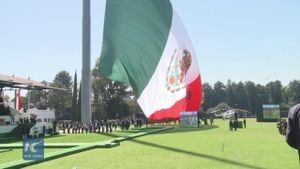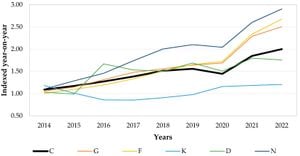Dutch Defense Minister Ruben Brekelmans recently shared his insights on European defense initiatives and the continuing impact of the war in Ukraine, expressing both skepticism and urgent call to action.
Brekelmans articulated doubts about the establishment of a European Defense Fund, which proponents argue could quickly bolster Europe’s defense status akin to the recovery funds initiated during the COVID-19 pandemic. Such funds, he noted, require investments from member states and, correspondingly, payouts based on contributions. This structure ostensibly guarantees local spending on munitions from manufacturers, particularly those located in France and Germany, yet Brekelmans remains cautious.
“The downside of Europe is such,” he explained during his appearance on the show Goedemorgen Nederland on NPO 1. “It only takes one or two countries to throw a wrench in the works for entire initiatives to fall apart. Often, these funds get bogged down by lengthy discussions over allocations, and we do not have time for those debates.”
Instead, Brekelmans suggests exploring schemes where smaller collectives of nations might purchase weapons together. This could expedite processes significantly and generate substantial orders for manufacturers without the middleman bureaucracy.
He noted the urgency of enhancing Europe’s defense capability as the United States gradually withdraws its support. Citing the pressing situation with Ukraine, Brekelmans remarked on the necessity for Europe to take the reins of its own defense, especially considering how the war has been thrust predominantly on European shoulders.
“With the United States retreating, the burden of the war has largely fallen on EU countries. It’s imperative for us to step up,” he asserted, highlighting the precarious balance between preparedness and diplomatic discussions with Russia.
Though Brekelmans stressed the importance of maintaining robustness, he remained aware of the delicate nature of the current geopolitical dynamic. “Putin will not be deterred by peace agreements,” he highlighted. “Security guarantees and military resources could inadvertently lead to confrontations with Russia. That's why it’s vitally important we set up these guarantees with American assistance.”
Commenting on the potential for peace, Brekelmans added, “Just because talks suggest peace may be at hand doesn’t mean the threat has receded. If Putin perceives any weakness along the NATO borders, he will test it.”
This perspective parallels growing concerns within the NATO alliance and echoes warnings against naiveté. Brekelmans is especially adamant about the necessity for military support for Ukraine, even amid discussions of potential peace accords. “Military backing must continue to deter Russian aggression,” he affirmed.
With upcoming diplomatic engagements planned between the United States and Russia, where discussions potentially stretch to future dealings involving Trump and Putin, Brekelmans expressed optimism but called for readiness. “The NATO alliance continues to serve as the great shield for our freedom,” he remarked, advocating for the enhancement of the collective’s efforts to instill deterrence.
Countries like the UK, led by Prime Minister Keir Starmer, have indicated they wish to play prominent roles alongside European allies to fortify these efforts. The Dutch government, too, reflects this ambition albeit contingent on the assurance of substantial security guarantees from the U.S.
Despite former U.S. President Trump’s controversial statements undermining NATO and its solidarity, Brekelmans remained hopeful about future American involvement. “They’re not going to back away completely,” he stated, reinforcing the narrative you will hear from multiple current politicians about the dynamic involvement of the U.S. being pivotal.
Meanwhile, the narrative from Europe has underscored unity and resilience against Russian threats, met with emphatic statements from leaders reinforcing their support for Ukraine on the third anniversary of the Russian invasion. “Europe stands with Ukraine, shoulder to shoulder,” echoed several officials during commemorations held recently.
Brekelmans’ statements reminded all parties involved of the urgent need to maintain focus and readiness. “We cannot afford to become complacent; our future security depends on it,” he concluded, echoing sentiments reverberated by several leaders at the recent EU summit discussions.



